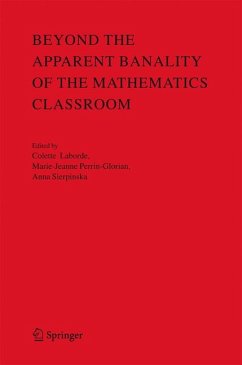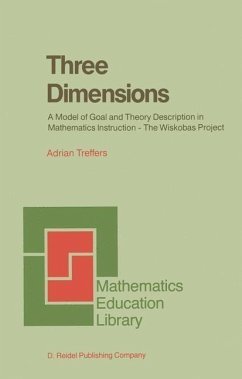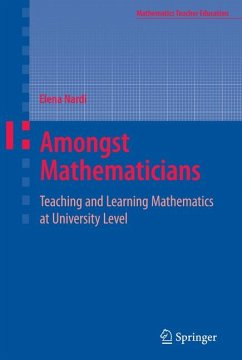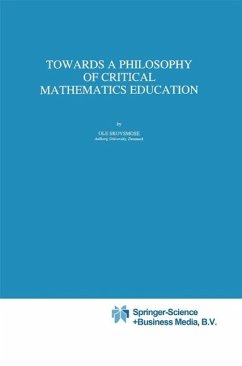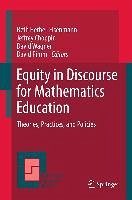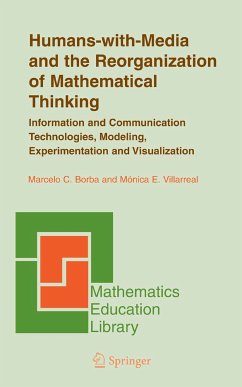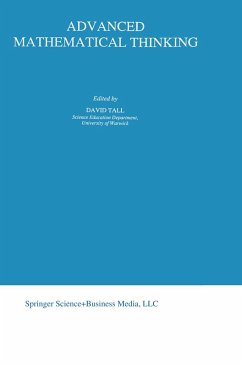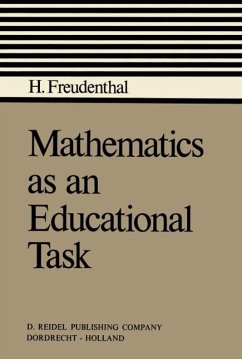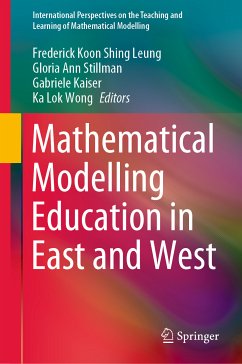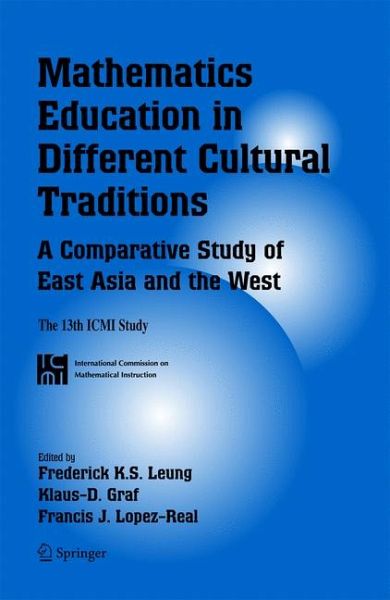
Mathematics Education in Different Cultural Traditions- A Comparative Study of East Asia and the West (eBook, PDF)
The 13th ICMI Study
Redaktion: Leung, Frederick Koon-Shing; Lopez-Real, Francis J.; Graf, Klaus-D.
Versandkostenfrei!
Sofort per Download lieferbar
160,95 €
inkl. MwSt.
Weitere Ausgaben:

PAYBACK Punkte
80 °P sammeln!
MARGARET WU, PARK KWNGMEE & LEUNG KOON SHING FREDERICK 153 Chapter 2-1 : Some Comparative Studies between French and Vietnamese Curricula ANNIE BESSOT & CLAUDE COMITI 159 Chapter 2-2: An Overview of the Mathematics Curricula in the West and East MARGARET WU & ZHANG DIANZHOU 181 Chapter 2-3: Classification and Framing of Mathematical Knowledge in Hong Kong, Mainland China, Singapore, and the United States LI YEPING & MARK B. GINSBURG 195 Chapter 2-4: Comparative Study of Arithmetic Problems in Singaporean and American Mathematics Textbooks YEAP BAN-HAR; BEVERLY J. FERRUCCI & JACK A. CARTER 2 13...
MARGARET WU, PARK KWNGMEE & LEUNG KOON SHING FREDERICK 153 Chapter 2-1 : Some Comparative Studies between French and Vietnamese Curricula ANNIE BESSOT & CLAUDE COMITI 159 Chapter 2-2: An Overview of the Mathematics Curricula in the West and East MARGARET WU & ZHANG DIANZHOU 181 Chapter 2-3: Classification and Framing of Mathematical Knowledge in Hong Kong, Mainland China, Singapore, and the United States LI YEPING & MARK B. GINSBURG 195 Chapter 2-4: Comparative Study of Arithmetic Problems in Singaporean and American Mathematics Textbooks YEAP BAN-HAR; BEVERLY J. FERRUCCI & JACK A. CARTER 2 13 Chapter 2-5: A Comparative Study of the Mathematics Textbooks of China, England, Japan, Korea, and the United States PARK KYUNGMEE & LEUNG KOON SHING FREDERICK 227 Chapter 2-6: A Comparison of Mathematics Performance between East and West: What PISA and TIMSS Can Tell Us MARGARET WU 239 Chapter 2-7: Case Studies on Mathematics Assessment Practices in Australian and Chinese Primary Schools & ZHAO DA-CHENG; JOANNE MULLIGAN MICHAEL MITCHELMORE 26 1 Chapter 2-8: Philippine Perspective on the ICMI Comparative Study BIENVENIDO F. NEBRES, S. J. 277 Section 3: Teaching and Learning - Introduction COLETTE LABORDE Chapter 3-1 : The TIMSS 1995 and 1999 Video Studies JOHANNA NEUBRAND Chapter 3-2: Proposal for a Framework to Analyse Mathematics Education in Eastern and Western Traditions GABRIELE KAISER, KEIKO HINO AND CHRISTINE KNIPPING Chapter 3-3: Cultural Diversity and the Learner's Perspective: Attending to Voice and Context DAVID CLARKE, YOSHINORI SHIMIZU, SOLEDAD A. ULEP, FLORENDA L.
Dieser Download kann aus rechtlichen Gründen nur mit Rechnungsadresse in A, B, BG, CY, CZ, D, DK, EW, E, FIN, F, GR, HR, H, IRL, I, LT, L, LR, M, NL, PL, P, R, S, SLO, SK ausgeliefert werden.




